Go Mount Haruna to Enjoy Magnificent View of Kanto Plains
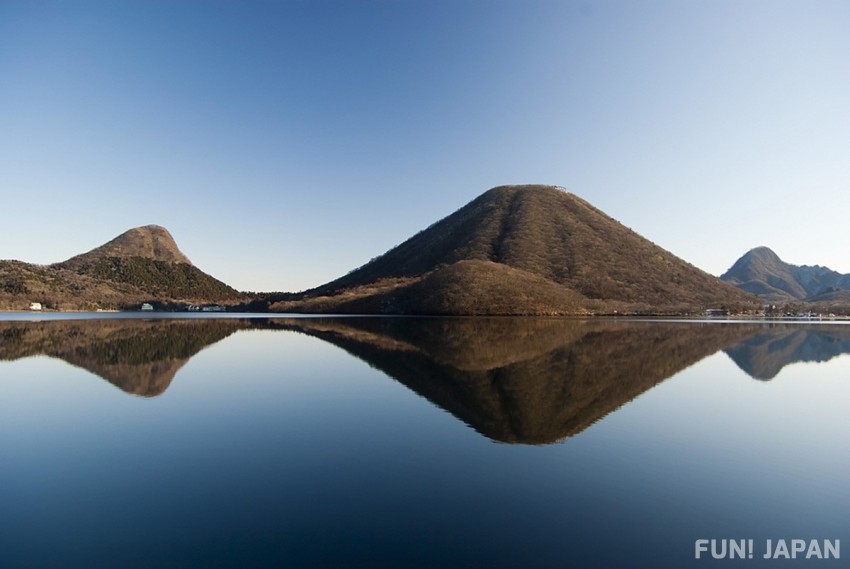
Mount Haruna is a mountain located in the northern part of Takasaki City in the Gunma Prefecture. It is formed by multiple volcanoes and it has many mountain climbing routes. Furthermore, you can feel the natural charm of Mt. Haruna through the mountain scenery and hiking, and you can also stroll around sightseeing spots such as lakes and shrines.
About Mount Haruna
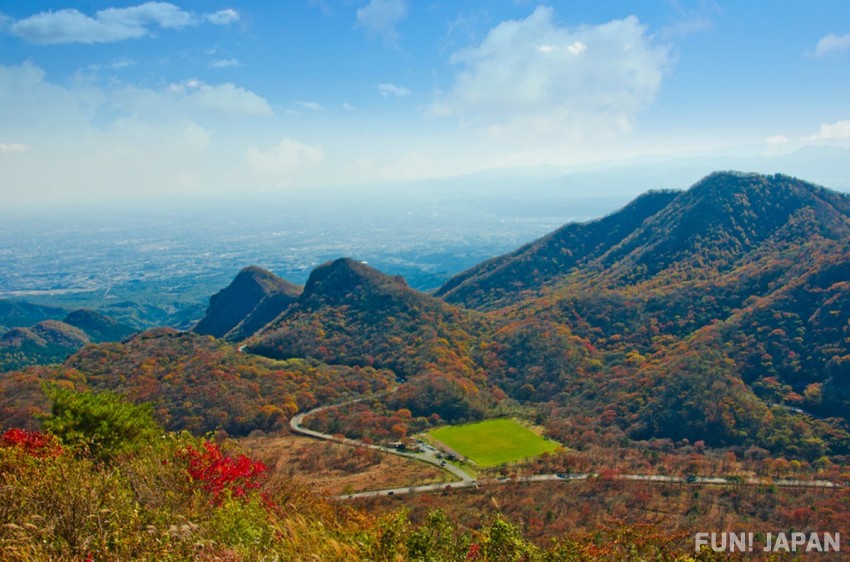
Mt. Haruna is the collective name for the Somme - Mount Kamongatake, Mount Eboshi, Mount Tenmoku, and the parasitic volcanoes Haruna Fuji, Mount Jaga, and Mount Soma,
Additionally, it is famous as one of the three mountains in the Jomo-Sanzan, along with Mount Akagi and Mount Myogi
Weather and Sightseeing Season in Mount Haruna
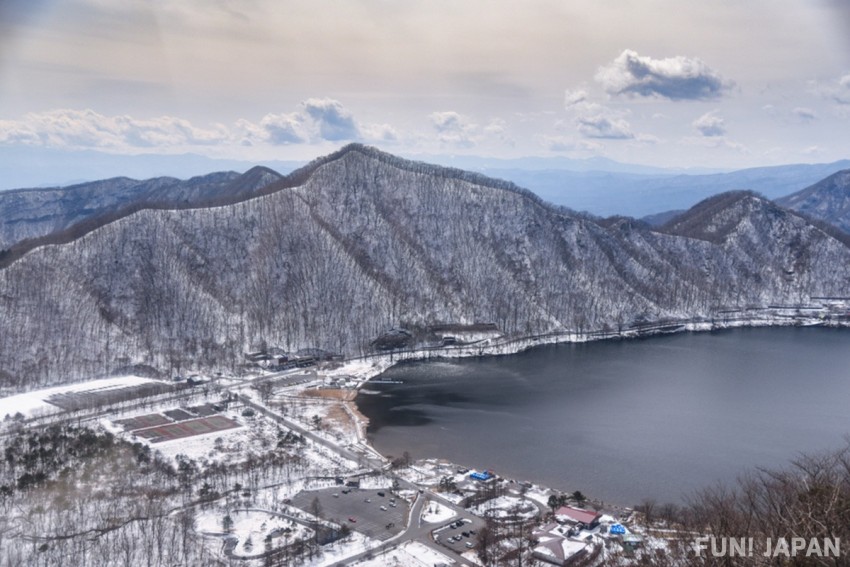
Mount Haruna is located at a high altitude of 1,449 meters, and there is a wide temperature difference throughout the year. There are some days when the maximum temperature is 21.2 °C in summer and the minimum temperature is -11.3 °C in winter. Based only on the climate, the summer season is cool and the most recommended season for sightseeing.
However, from spring to early summer, flowers such as Cerasus jamasakura, Rhododendron kaempferi, and hemerocallis thunbergii colour the mountains. Another appealing point is that the expression of the mountain changes depending on the season, for example autumn leaves in autumn and snow scenes in winter. Therefore, if you want to enjoy the seasonal views unique to Japan, come and visit each season.
Things to See and Do at Mount Haruna
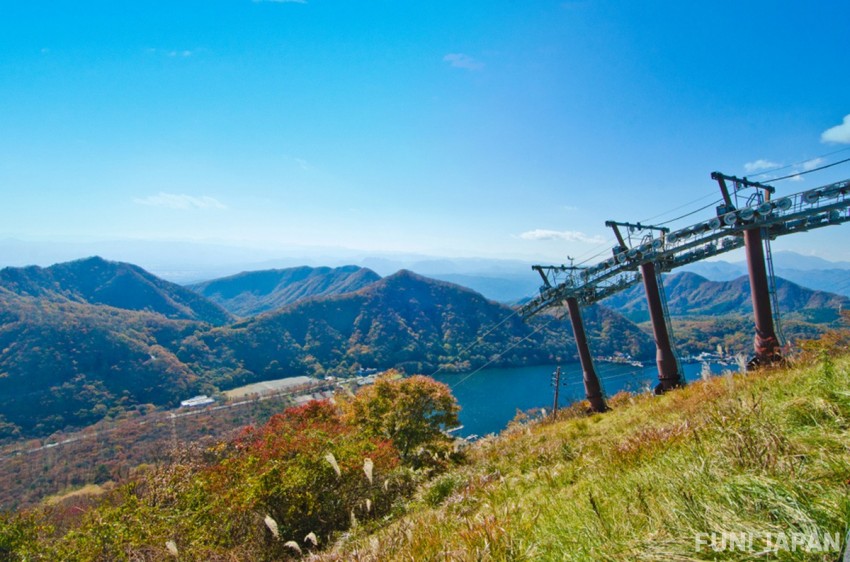
At Mount Haruna, it is possible to enjoy the seasonal scenery via various climbing routes. There are three main climbing routes. One route that goes through Mount Kamongatake, a route that goes through Haruna Fuji, and a route that goes through Yaseone Touge. One attraction is that it is easy to make a round trip in less than two hours from the starting point of all routes.
From each route, you can see the other mountains that make up Mount Haruna, as well as flowers like Maianthemum robustum and Menziesia multiflora.
Take Mount Haruna Ropeway to Enjoy Snow or Cherry Blossoms Scenery
Mount Haruna Ropeway, where you can enjoy the picturesque scenery of each season such as Cherry Blossoms / Snow Scenery
If you are not skilled at mountain climbing, it may be better to use the Mount Haruna Ropeway. The Mount Haruna Ropeway connects Haruna Kogen Station on the side of Lake Haruna to the peak of Haruna Fuji Station. One appeal point is the climbing speed of 527-meter in 2 minutes 50 seconds.
From the ropeway, you can get a panoramic view of Mount Haruna, and from the summit you can get a panoramic view of Lake Haruna and the Kanto Plain. Additionally, when the weather is nice, you can see Tokyo SkyTree and Mount Fuji. You will be charmed by the scenery of cherry blossoms, autumn leaves, snow scenery and the nature on Mount Haruna
Walk Around All of the Sightseeing Spots Around Mount Haruna
When you go sightseeing at Mount Haruna, let’s drop by nearby sightseeing spots. Here, we will introduce some recommended spots.
Haruna Shrine Area
The Haruna Shrine area stretches out to the southern foot of Mount Haruna. There are restaurants, museums and other shops located in the area around Mount Haruna Shrine. At Mount Haruna Shrine, you can enjoy the worship halls, gates, cedar trees and giant rocks.
Haruna Lake Area
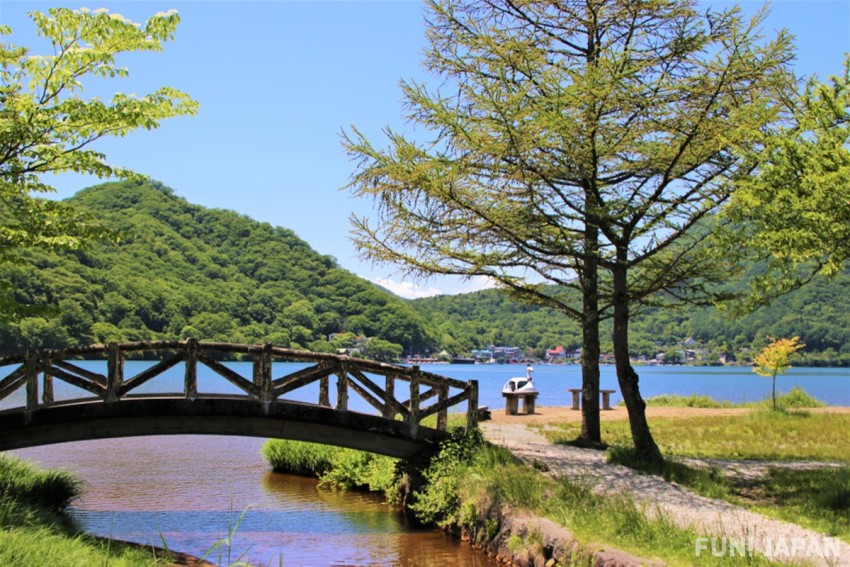
The Haruna Lake area is centred on Haruna Lake and Haruna Fuji, which were formed by the eruption of Mount Haruna. Particularly, on Haruna Lake, it is recommended to take a swan shaped sightseeing boat or a horse drawn carriage and look out over the view of Mount Haruna. Additionally, Genji fireflies fly around in summer, creating a magical sight.
Hotels and Japanese Inns Around Mount Haruna
If you are searching for accommodation around Mount Haruna, we recommend the Haruna Lake area. Even though the number of accommodation is small, there is a wide variety of accommodation such as hotels, Ryokan (Japanese inns) and bungalows. The hotel cost varies depending on the type of accommodation. Hotels start from about 5,000 yen per night, Ryokan from about 7,000 yen per night, and bungalows on the camping grounds start from about 2,000 yen per night.
If you are looking for more accommodation options, try the hot spring, Ikaho Onsen, located in the halfway up Mount Haruna. It can be accessed in around 40 minutes by bus from Haruna Lake. The average room fee is a little more expensive at around 20,000 yen per night. (Information accurate as of September 2019)
How to Get to Mount Haruna
If you wish to go to Mount Haruna, head for the Prefectural Haruna Park Visitor Centre. First, take the Gunma bus from JR Takasaki Station bound for Haruna Lake, and get off at the last stop. It takes about 1 hour 30 minutes to arrive. After getting off the bus, it takes around 20 minutes on foot to reach the Prefectural Haruna Park Visitor Centre, where you will find the Mount Haruna trailhead.
Spot information
- Spot name: Mount Haruna (Prefectural Haruna Park Visitor Centre)
- Street address: 845, Harunacho, Takasaki, Gunma 370-3348
- Access: Takasaki Station → [Gunma Bus (To Lake Haruna)] About 1 hour 30 minutes → Lake Haruna → [Walk] About 20 minutes
- Wi-Fi:Unavailable
- Language: Only Japanease
- Credit cards:No credit cards accepted
